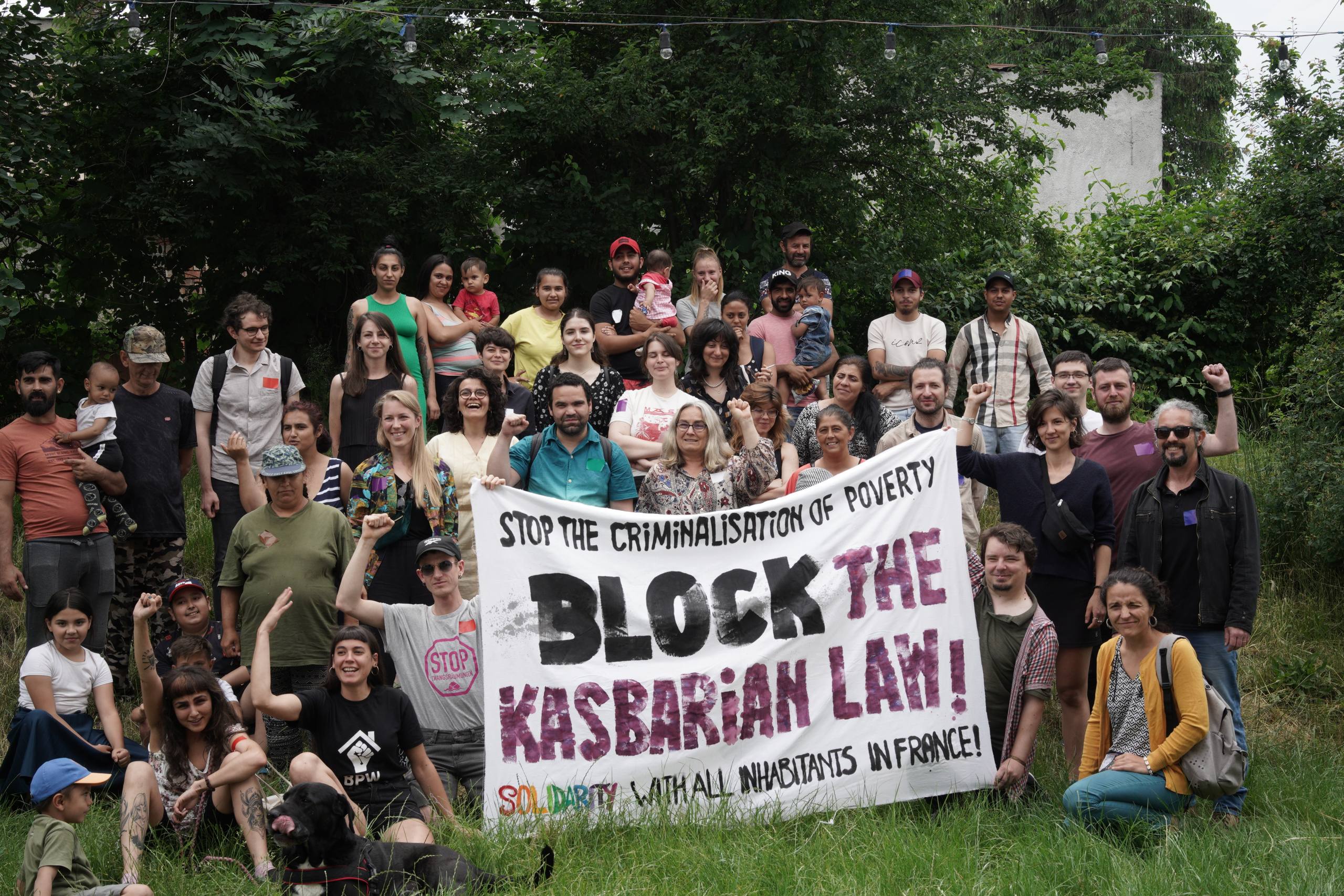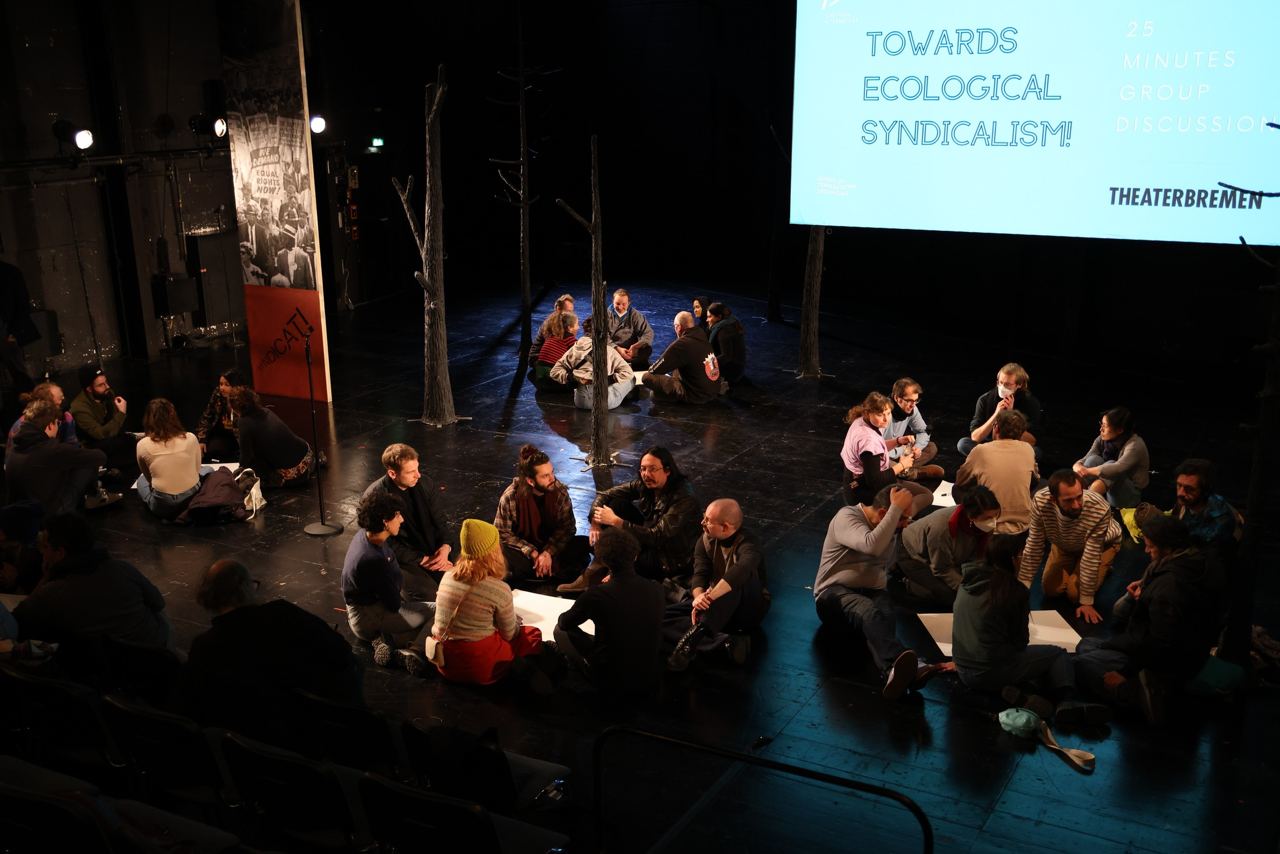Aug 31, 2023
Transnational Citizen Assembly for Housing Justice in Cluj Napoca – Romania
Desire Foundation and Căși sociale ACUM! / Social Housing Now!
Since 1996, Desire Foundation provides a collective action platform for public intellectuals, academics, artists, and activists in a university town of Romania (Cluj) characterised by a multicultural environment but also shaped by deep social inequalities. Desire provides a flexible format for critical and transformative actions in research, community building, and advocacy mostly through projects and campaigns. The organisation does not have a permanent staff; it relies on a core group of its activists and experts who secure their main employment elsewhere. The organisation is truly value and outcome oriented. It is credibility and relevance, rather than sustainability that characterises the success of this particular organisational model.
The Social Housing NOW! movement started as a civic-activist initiative of Desire Foundation. In 2016 it announced the need to politicise social housing in the city of Cluj in the context of the drastic reduction of the state housing fund and the transformation of housing into a real estate business in recent decades, as well as the limitation of access to social housing precisely to people who are entitled to occupy it. In 2017, Social Housing NOW! continued to advocate for impoverished working class Roma to become a public actor fighting for an anti-racist and just public housing policy.
We define this policy as a tool to ensure belonging to the city in the broad sense of not only having the right to live in the city, but to participate in political decisions on its development. In 2017, members of the Social Housing NOW! campaign (together with FCDL, Right to the City, and E-Romnja Association) were among the initiators of the informal national network Block for Housing.
The goal of turning the campaign into a driving force of the local movement for public housing and housing justice took shape through our actions from October 2017 to June 2018. In order to boost the creation of a city for people, not for profit, as a political-activist movement we propose for Cluj a development model that expands the public housing stock, including social housing, so that it could respond to the housing needs of large social categories who cannot afford a home from the market; allocates an adequate budget for related public investments; ensures immediate access to adequate social housing for the lowest income groups and those living in deprived conditions; supports from the public budget also alternative housing models, such as various forms of collective housing.
How do we understand the housing crisis?
Housing crisis is an endemic feature of a housing regime where the social or use value of housing is replaced by its exchange or market value. In such a system, the construction and distribution of dwellings is under the influence of the interests of capital accumulation and does not satisfy people’s social needs and financial capacities.
Housing is not only commodified, but also financialized in contemporary global capitalism, i.e., it became an asset class used in the logic of financial actors, practices and markets. Due to the uneven development of global capitalist political economy, the housing system displays various characteristics across the countries. Nonetheless, we may detect certain common aspects of the housing crises across different geographical contexts: shrinkage of public housing sector and its residualization so that is expected to be reduced to the needs of the poorest social categories; privatisation and financialization of social housing; housing is provided by real estate developers who invest into this economic sector for profit-making; unaffordable private rents and housing market prices resulting from the disparities between people’s stagnating income and increasing housing cost; an urban development based on the so-called regeneration of neighbourhoods leading to the transformation of the built environment and its inhabitants (or gentrification); creation of segregated residential areas on the one hand in the form of gated communities of the rich and, on the other hand, in the form of zones characterised by housing deprivations and stigmatisation.
We proposed the housing crisis issue for the TEA Assembly in Cluj-Napoca because the city became the most expensive locality of Romania in terms of real estate market in the last decade, while simultaneously becoming the centre of one of the most active housing movements in the country.
The Cluj TEA Assembly: from identifying the local manifestations of housing crisis to the elaboration of the Cluj Manifesto for housing justice
The Desire Foundation invites experts and citizens to a Transnational Citizens’ Meeting to discuss and analyse the effects and possible solutions of the housing crisis. The housing crisis affects all of us and is everyone’s business. This assembly will give participants the opportunity to exchange experiences. Invited speakers from abroad and locally will present on the impact of the housing crisis and how to fight it, and participants will have the opportunity to identify their own housing problems and together formulate proposals for solutions.
The Assembly will gather 53 participants, out of which 10 activists/ experts of housing crisis and struggles, and 43 citizens of Cluj-Napoca.
Methodology for the selection of participants
Participants were reached in different ways:
- Through the network of the housing movement in Cluj (Social Housing NOW!)
- The speakers were invited from the different member groups of the European Action Coalition. The European Action Coalition for the Right to Housing and to the City is a convergence process between movements from different cities in several european countries fighting for the respect of these fundamental rights.
- Promoting the assembly through the Desiré Foundations Social media platforms and website. 4.Online open call for participation and registration form available for any citizen of Cluj. 5. A radio interview was arranged with the local radio station, where we could reach a larger audience. 6. The Roma community from the Pata Rat ghetto were invited to participate in the assembly.
Final recommendations collected during the assembly
Increasing the number of social-public housing units, including affordable housing for students
- A significant increase in the number of social-public housing so that their share of the total housing stock reaches 50% by 2050, ensuring their distribution according to actual local needs. We call for 15% public non-profit housing stock by 2030.
- Obligation for public administration authorities to build a stock of social-public housing according to the real needs in the city and to ensure that applicants have effective access to housing at least two years after the first application.
- Creating a special budget for the construction of public social housing, fed by special taxes on real estate transactions and on the profits made by real estate developers/investors and banks on real estate loans.
- Establishing a structure within public administrations responsible for planning, implementing and monitoring the development of public social housing.
- Establishing state-owned construction companies to build social-public housing on a non-profit basis, reducing production costs.
- Socialising the stock of public housing by creating tenants’ associations or cooperatives to participate in decision-making on the management of public housing.
- Transfer 25% of the apartments built by developers to public ownership, making them a public good managed by the municipality together with tenants’ associations or housing cooperatives. 10% of what is built by private developers to become a public good by 2030.
- Expropriation of buildings that have been unused for more than five years and their inclusion in the stock of social-public housing.
- Turn unused public buildings into social-public housing or community housing.
- Change the eligibility criteria for public social housing so that people who are studying or working temporarily (without residence) in the locality are also entitled to public housing.
- Ensuring that students have access to public social housing or state and university subsidised hostels so that the number of places covers the real needs of students.
Regulation of the housing market, rents and energy
- Regulate the number of privately owned homes to stop property speculation.
- Regulate the price of housing.
- Capping and regulating private rents, ensuring that the cost of rent does not financially overburden tenants (not exceeding 20% of their income), under transparent contracts of at least five years.
- Special regulation of short-term rents so that they do not contribute to the general increase in rents in the city.
- Capping and regulating electricity and gas prices.
- Ensure universal access to water.
- Protecting the tenants in areas undergoing urban regeneration programmes so that those living there do not have to move due to rising rents.
Adequate income to cover housing costs
- Cover from minimum income a decent minimum consumption basket, a good part of which is spent on housing costs (rent, bank payments, utilities, home improvements).
- Housing costs should not exceed 20% of people’s income.
Ban and prevent forced evictions, improve housing conditions for all
- Ban by law forced evictions, meaning all evictions that leave evictees without adequate alternative housing.
- Improve living conditions for people living in informal settlements (transport, roads, sanitation, utilities).
- Implement solutions for informal settlements that respect the rights of those living there.
- Eliminating racism and housing exclusion of LGBTQ persons and couples
- Implement mechanisms to sanction and eliminate racism against Roma, refugees and immigrants that make it difficult for them to access adequate housing.
- Implement mechanisms to sanction and eliminate homophobia and exclusion from housing for LGBTQ persons and couples.
Next steps after the assembly
The housing manifesto, which was collectively agreed upon during the assembly, will be edited into a brochure in three languages (Romanian, Hungarian and English) and will be printed and distributed. The manifesto will be made available and briefly presented at the transnational assembly of the Transeuropa festival in October. We would also like to present the manifesto in an online event, so that it can reach people who cannot attend the events organised in Cluj. In December, before our annual revival, we would like to reconvene all those who participated in the assembly to strengthen and build our network and continue organising. Between September – December we will make visual materials consisting of messages extracted from the Manifesto that will increase the impact of the citizen assembly that we organised.


